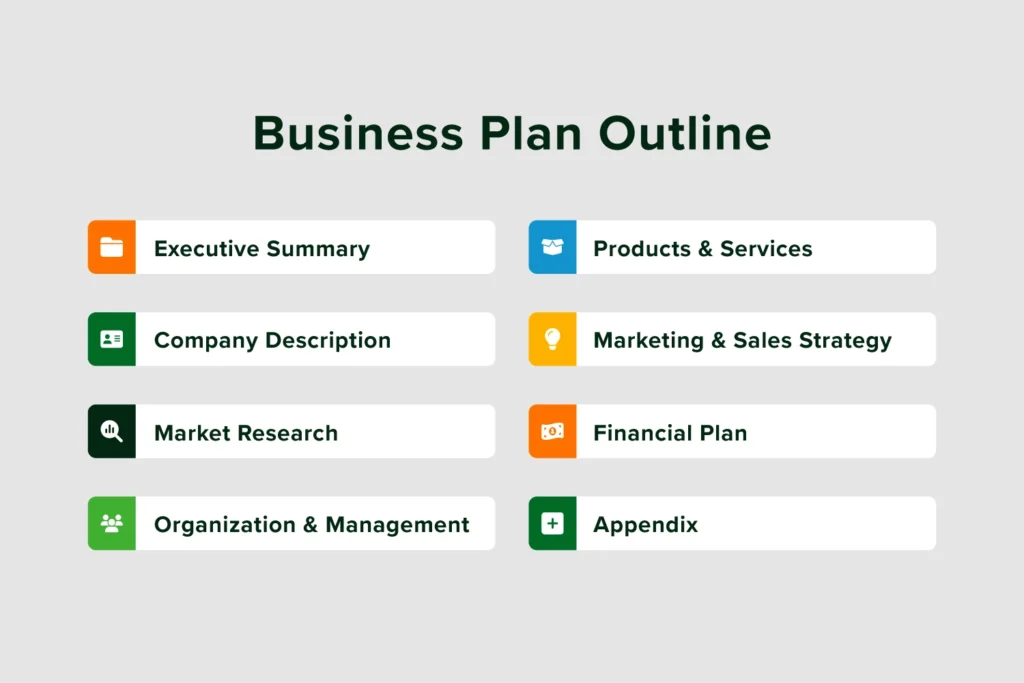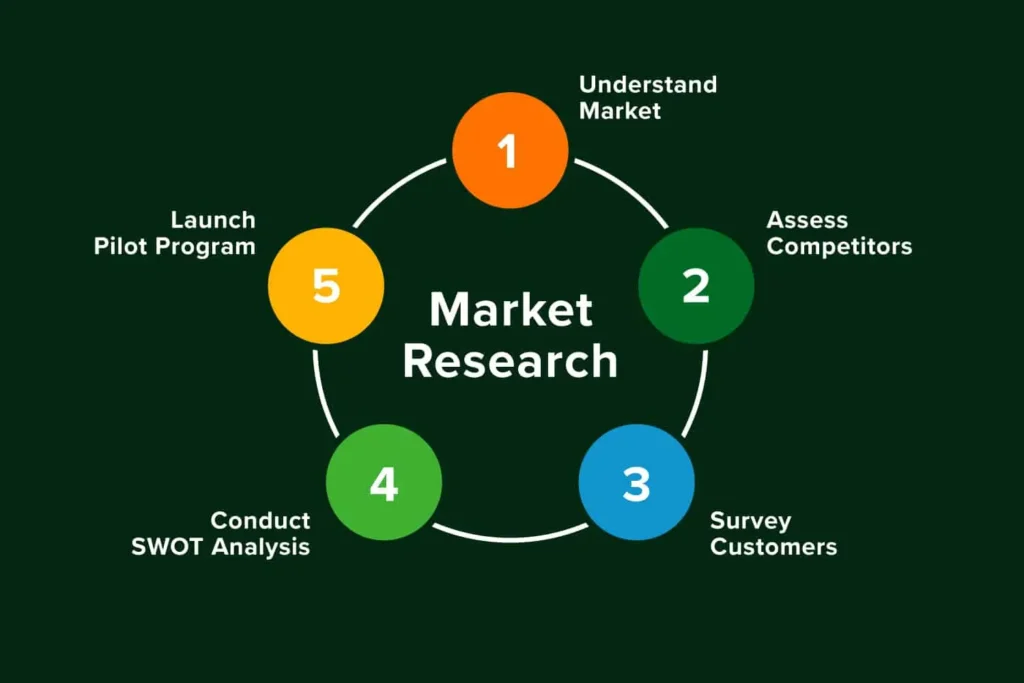Disclaimer: The articles published here on the City of Eau Claire Economic Development Division website are meant to be a helpful starting point as you explore doing business in our community. They’re not the final word on requirements or what’s best for your unique situation. We always recommend checking in with legal, financial, or other professionals for advice tailored to your business.
Congratulations! You’ve officially launched your business in Eau Claire. Whether you just opened your doors yesterday or you’re celebrating your first few months, managing your finances now is key to keeping your business healthy and growing. Starting strong is great, but staying strong takes good money management.
Let’s talk about the essentials you’ll want to keep an eye on after launch: cash flow, expenses, and taxes. Think of these as the three pillars that will help keep your business stable and ready for whatever’s next.
Cash Flow: The Lifeblood of Your Business
Cash flow might sound like a complicated finance term, but it’s really just the money coming in and going out of your business. Think of it like the heartbeat of your company; keeping money flowing smoothly means your business stays healthy and can keep operating day to day.
When your cash flow is positive, you’re bringing in more money than you’re spending, which is exactly where you want to be. But here’s the catch, even if your business looks profitable on paper, cash flow hiccups can cause real problems. You might have a stack of sales invoices waiting to be paid, but if the money isn’t hitting your bank account fast enough, or if a bunch of bills all come due at once, you could find yourself scrambling to cover essentials like rent, payroll, or inventory.
So how do you keep your cash flow healthy and avoid those stressful crunches? Here are some practical tips:
1. Track It Regularly
Make it a habit to monitor your cash flow on a consistent schedule. Weekly is great if you can swing it, but monthly works too. You don’t need anything fancy to start; a simple spreadsheet can do the trick. Just list your expected income and expenses and update it as money moves in and out. Over time, this will help you spot patterns and plan ahead. If you’re ready for the next step, accounting software like QuickBooks, Wave, or Xero can automate a lot of this and give you clearer insights.
2. Invoice Promptly & Follow Up
The sooner you send out invoices after a sale or service, the sooner you can expect to get paid. Don’t wait weeks to bill your customers. And if payments get delayed, don’t hesitate to follow up with a friendly reminder. It might feel awkward at first, but it’s a normal part of business. Prompt invoicing and active follow-up can significantly improve your cash flow by reducing how long money sits outstanding.
3. Keep a Cash Reserve
Business is full of surprises—some good, some not so much. Having a cash cushion, ideally enough to cover three to six months of expenses, can help you weather slow seasons, unexpected repairs, or any hiccups in customer payments. This reserve acts like a safety net so you’re not scrambling when times get tight. If you haven’t started saving yet, try to tuck away a little bit from your profits each month until you build it up.
Bonus Tip: If you find yourself constantly running low on cash, it might be time to review your payment terms or look for ways to speed up income, like offering discounts for early payments or setting up automatic billing.
In Eau Claire, many local businesses rely on solid cash flow management to grow steadily. Keeping these practices in mind will help you avoid cash crunches and focus on what really matters: serving your customers and building your dream.
Watch Your Expenses Closely
After you launch your business, it’s easy to get caught up in the excitement and reinvest every dollar you make back into the business. And honestly, sometimes that’s exactly what you should do! Putting money into marketing, hiring, or better equipment can help you grow faster. But it’s just as important to keep a close eye on your expenses so you don’t get caught off guard.
The first step is to understand what kinds of expenses you have. Breaking them down into categories helps make sense of where your money is going and where you might have some wiggle room.
Fixed Costs are your steady, predictable bills—the ones you can count on every month. Think rent for your space, utility bills, insurance premiums, loan payments, and maybe salaries if you have staff on a steady schedule. Since these don’t change much, they’re the backbone of your monthly budget and something you want to plan for carefully.
Variable Costs can fluctuate month to month. This includes inventory if you sell products, marketing campaigns (maybe you spend more to promote a sale), freelance or contract help, shipping fees, and things like supplies or materials. These costs are flexible, which means you can often adjust them depending on how your business is doing.
One-Time Costs are those occasional but often significant expenses. Equipment purchases, renovations or improvements to your space, software licenses, permits, or legal fees all fit here. These don’t happen every month, but they can add up quickly, so it’s smart to budget for them over time or set aside a fund.
Knowing what’s fixed versus flexible gives you the power to budget smarter. If cash gets tight, for example, you might not be able to change your rent, but you can dial back marketing spend or hold off on ordering extra inventory.
Another important tip: Don’t overlook the “little” expenses. Those small monthly subscriptions—coffee service, business apps, memberships, or even streaming services for music or videos in your store—can quietly add up to hundreds of dollars each year. Periodically review all your subscriptions and recurring bills. Ask yourself if each one is really bringing enough value to justify the cost. Cutting back on a few of these can free up money for bigger priorities.
Lastly, track your expenses regularly and compare them against your budget. This helps catch any surprises early—like a utility bill that’s creeping up or a software subscription you forgot you signed up for. Staying on top of expenses means fewer headaches and more control over your business’s financial health.
Here in Eau Claire, local business owners often say that knowing exactly where their money goes is what helped them make smarter choices, especially in those critical first years. Keeping expenses in check isn’t about penny-pinching; it’s about being intentional with your dollars so your business can thrive.
Taxes: Stay Ahead of the Game
Taxes can feel like a big, confusing hurdle when you’re running a business, but getting organized early makes a huge difference and can save you from headaches (and penalties) down the road. The good news is you don’t have to be a tax expert to stay on top of things; a little preparation goes a long way.
Here’s a quick rundown of the key tax basics every Eau Claire business owner should know:
- Understand Your Tax Obligations: The taxes you owe depend a lot on your business type and what you sell or do. For example, if you have employees, you’ll need to handle payroll taxes. If you sell physical goods or certain taxable services here in Eau Claire, you’re required to collect Wisconsin sales tax and remit it to the state. There’s also income tax on your business profits, which you might pay quarterly as estimated taxes. And don’t forget about any local taxes or fees that might apply. The rules can feel overwhelming at first, but breaking them down into manageable pieces makes it easier.
- Keep Detailed Records: This is one of the most important things you can do. Save every receipt, invoice, bank statement, and financial document related to your business. Good recordkeeping isn’t just for tax time; it helps you track your expenses and income throughout the year, so you’re never scrambling to find information. Many business owners find that scanning or digitizing receipts and using bookkeeping software helps keep everything organized and easy to find when tax season rolls around.
- Make Estimated Tax Payments: Unlike a regular paycheck where taxes are withheld automatically, many small business owners need to make quarterly estimated tax payments throughout the year. These payments cover your income tax and sometimes self-employment tax, and they keep you from owing a big lump sum at tax time. Missing or underpaying these can result in penalties and interest, so setting reminders or automating payments is a smart move.
- Consider Working with a Pro: Taxes can be complicated, especially with Wisconsin-specific rules and Eau Claire’s local requirements. Hiring a local accountant or tax advisor who understands the landscape can save you a ton of time, money, and peace of mind. They can help you maximize deductions, avoid costly mistakes, and even plan for the future. Many Eau Claire businesses find this to be a worthwhile investment that pays off year after year.
Where to Find Help in Eau Claire
Managing your business finances might feel overwhelming at times, but you don’t have to do it alone. Eau Claire has a strong community of professionals and organizations ready to support local entrepreneurs like you. Whether you need expert advice, training, or just someone to brainstorm with, there are plenty of resources nearby to help you succeed.
Local Accountants & Bookkeepers
Finding an accountant or bookkeeper who knows the ins and outs of Eau Claire’s market and Wisconsin tax laws can be a game changer. These professionals can help keep your books in order, guide you through tax filings, and offer strategic financial advice tailored to your specific business. If you’re new to managing business finances, starting with a local pro can save you time, money, and stress.
Small Business Workshops & Classes
Learning never stops, and Eau Claire offers plenty of opportunities to sharpen your financial skills. Community organizations like the SCORE West Central Wisconsin chapter often host workshops on topics like budgeting, taxes, cash flow management, and more. The University of Wisconsin–Eau Claire also provides business classes and resources that are open to the public. These sessions are a great way to connect with other business owners and learn practical tips in a friendly, low-pressure environment.
Local Small Business Development Centers (SBDCs)
Eau Claire is served by the Wisconsin Small Business Development Center network, which offers free one-on-one counseling, financial planning assistance, and training tailored to your needs. SBDCs are a fantastic resource to help you navigate financial challenges and plan for growth.
Let’s Sum It Up
Remember, managing your finances well after launch isn’t just about surviving; it’s about setting your business up to thrive. Keeping close tabs on cash flow, expenses, and taxes builds a strong foundation that can support growth and stability for years to come.
Article Cover Illustration by Freepik





